Can Trump Become the King of East Asia?
 South Korea welcomes Trump with highest award, golden crown and ketchup
South Korea welcomes Trump with highest award, golden crown and ketchup
From menus featuring American beef and ketchup to the gifting of a massive replica gold crown, Donald Trump's welcome to South Korea appeared carefully crafted to please the US president.
Mr Trump touched down in Gyeongju on Wednesday, local time for the Asia-Pacific Economic Cooperation (APEC) leaders' summit — the final stop on his whirlwind tour through Asia.
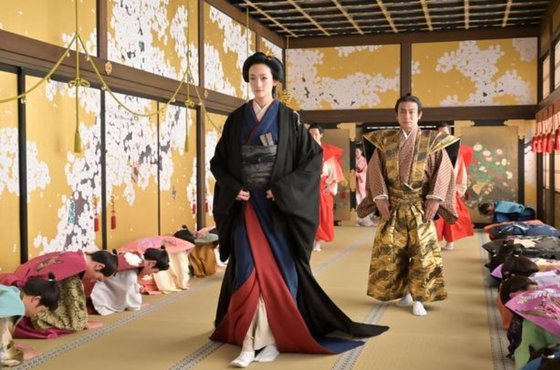
Japanese overlord
I found it surprising and interesting that Trump received an ancient Korean gold crown as a gift!
I felt that Trump was very pleased to see the splendor of Korea's gold crown!
What does a crown mean to East Asians?
Perhaps Koreans want an American civilan to become the king of East Asia and bring peace and prosperity?
My beloved elder brother Steve, I nicknamed him the King of the Rockies!
I guess he lives in a state with a population of 580,000!😄

His travels across North America always amazed and entertained me!
The vastness, beauty, and abundance of the North American continent have always overwhelmed and filled me with envy!
He traveled across North America in that huge truck!
I thought that because of America's vast territory and harsh nature, we had to drive such big, sturdy trucks!
Americans are brimming with confidence because of the vastness of the American continent and its boundless food and resources!😲
Starving children in North Korea
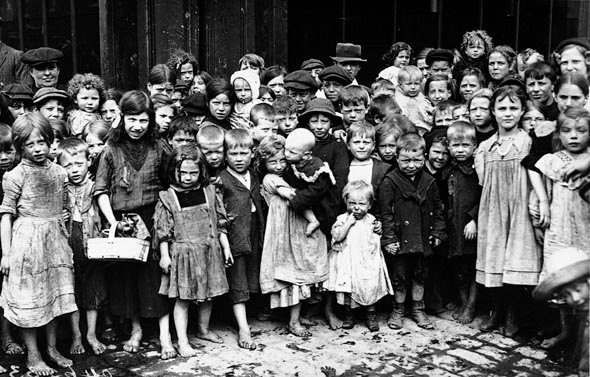
Children of the London Slums
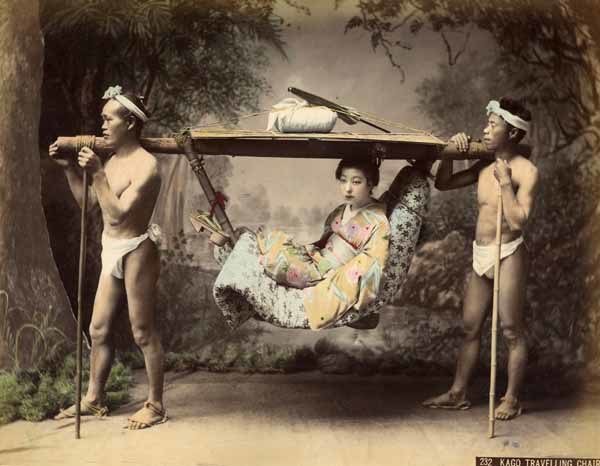
An upper-class Japanese woman and her servants
Fat Joseph
From my perspective, America is a world blessed by God!
2. American civilians and East Asian overlords
1. The Birth of the Pacific Empire!
 General power of attorney to Yi Wan-yong signed and sealed by the last emperor, Sunjong of the Korean Empire (Yi Cheok, 이척 李坧). The last emperor's first name '坧' used as signature.
General power of attorney to Yi Wan-yong signed and sealed by the last emperor, Sunjong of the Korean Empire (Yi Cheok, 이척 李坧). The last emperor's first name '坧' used as signature.
The Japan–Korea Treaty of 1910, also known as the Japan–Korea Annexation Treaty, was made by representatives of the Empire of Japan and the Korean Empire on 22 August 1910.[1] In this treaty, Japan formally annexed Korea following the Japan–Korea Treaty of 1905 (by which Korea became a protectorate of Japan) and the Japan–Korea Treaty of 1907 (by which Korea was deprived of the administration of internal affairs).
Japanese commentators predicted that Koreans would easily assimilate into the Japanese Empire.[1]
In 1965, the Treaty of Basic Relations between South Korea and Japan confirmed this treaty is "already null and void".[2]
Japan's overlords were convinced 150 years ago that @valued-customer was their most dangerous enemy.😆
The Japanese overlords considered @valued-customer a more dangerous and feared enemy than the overlords of Europe, including Britain!
@valued-customer did not recognize or respect the authority of the overlords.
Above all, what the Japanese overlords feared most was @valued-customer's ability to conquer Japan.
So, Japan's overlords believed they would have to wage war against @valued-customer in the future.
However, Japan was too small and poor compared to the United States.
The Japanese overlords believed they absolutely had to conquer Korea and China!
After conquering Korea and China, they had to wage war against @valued-customer.
So Japan started a war and made Korea a colony in 1910.
However, @valued-customer ignored Japan from the beginning because it is small and poor.
 Syngman Rhee
Syngman Rhee
Syngman Rhee (Korean: 이승만; Hanja: 李承晚; pronounced [iː.sɯŋ.man][b]; 26 March 1875 – 19 July 1965), also known by his art name Unam (우남; 雩南),[1] was a South Korean politician who served as the first president of South Korea from 1948 to 1960. Rhee was also the first and last president of the Provisional Government of the Republic of Korea from 1919 to his impeachment in 1925 and from 1947 to 1948. As president of South Korea, Rhee's administration was characterised by authoritarianism, limited economic development, and in the late 1950s growing political instability and public opposition to his rule.
Syngman Rhee was a member of Korean royalty and a Christian. He argued that Korea should become a Christian nation like the United States.
Syngman Rhee asked the United States to help Korea achieve independence.
Syngman Rhee predicted that after conquering Korea, Japan would start a war to conquer China.
Syngman Rhee told @valued-customer that the US Navy should attack Tokyo.
He argued that if the US stands by and watch Japan's war of aggression against China, Japan will eventually attack the US.
However, @valued-customer argued that there was no reason for Americans to go to war with Japan and shed blood for the Chinese.
 Japanese troops entering Shenyang during the Mukden incident
Japanese troops entering Shenyang during the Mukden incident
The Mukden incident was a false flag event staged by Japanese military personnel as a pretext for the 1931 Japanese invasion of Manchuria.[3][4][5]
On September 18, 1931, Lieutenant Suemori Kawamoto of the Independent Garrison Unit [ja] of the 29th Japanese Infantry Regiment [ja] detonated a small quantity of dynamite[6] close to a railway line owned by Japan's South Manchuria Railway near Mukden (now Shenyang).[7] The explosion was so weak that it failed to destroy the track, and a train passed over it minutes later. The Imperial Japanese Army accused Chinese dissidents of the act and responded with a full invasion that led to the occupation of Manchuria, in which Japan established its puppet state of Manchukuo five months later.
As Syngman Rhee predicted, Japan began a full-scale invasion of China in 1931.
The Chinese said it was the beginning of a 15-year war with Japan.
 Clockwise: Japanese landing forces in gas masks during the Battle of ShanghaiNRA forces on the Great WallNanjing Massacre victims on the Qinhuai River shoreChinese machine gun nest at the Battle of WuhanJapanese Mitsubishi Ki-21 in the bombing of ChongqingChinese Expeditionary Force marching in India
Clockwise: Japanese landing forces in gas masks during the Battle of ShanghaiNRA forces on the Great WallNanjing Massacre victims on the Qinhuai River shoreChinese machine gun nest at the Battle of WuhanJapanese Mitsubishi Ki-21 in the bombing of ChongqingChinese Expeditionary Force marching in India
The Second Sino-Japanese War was fought between the Republic of China and the Empire of Japan between 1937 and 1945, following a period of war localized to Manchuria that started in 1931.[24][25] It is considered part of World War II, and often regarded as the beginning of World War II in Asia. It was the largest Asian war in the 20th century.[26] It is known in the Republic of China and People's Republic of China as the War of Resistance Against Japanese Aggression.[a]
On 18 September 1931, the Japanese staged the Mukden incident, a false flag event fabricated to justify their invasion of Manchuria and establishment of the puppet state of Manchukuo. This is sometimes marked as the beginning of the war.[27][28] From 1931 to 1937, China and Japan engaged in skirmishes, including in Shanghai and in Northern China. Nationalist and Chinese Communist Party (CCP) forces, respectively led by Chiang Kai-shek and Mao Zedong, had fought each other in the Chinese Civil War since 1927. In late 1933, Chiang Kai-shek encircled the Chinese Communists in an attempt to finally destroy them, forcing the Communists into the Long March, resulting in the Communists losing around 90% of their men. As a Japanese invasion became imminent, Chiang still refused to form a united front before he was placed under house arrest by his subordinates who forced him to form the Second United Front in late 1936 in order to resist the Japanese invasion together.
The full-scale war began on 7 July 1937 with the Marco Polo Bridge incident near Beijing, which prompted a full-scale Japanese invasion of the rest of China. The Japanese captured the capital of Nanjing in 1937 and perpetrated the Nanjing Massacre. After failing to stop the Japanese capture of Wuhan in 1938, then China's de facto capital at the time, the Nationalist government relocated to Chongqing in the Chinese interior. After the Sino-Soviet Non-Aggression Pact, Soviet aid bolstered the National Revolutionary Army and Air Force. By 1939, after Chinese victories at Changsha and with Japan's lines of communications stretched deep into the interior, the war reached a stalemate. The Japanese were unable to defeat CCP forces in Shaanxi, who waged a campaign of sabotage and guerrilla warfare. In November 1939, Nationalist forces launched a large scale winter offensive, and in August 1940, CCP forces launched the Hundred Regiments Offensive in central China. In April 1941, Soviet aid was halted with the Soviet–Japanese Neutrality Pact.
In December 1941, Japan launched a surprise attack on Pearl Harbor and declared war on the United States. The US increased its aid to China under the Lend-Lease Act, becoming its main financial and military supporter. With Burma cut off, the United States Army Air Forces airlifted material over the Himalayas. In 1944, Japan launched Operation Ichi-Go, the invasion of Henan and Changsha. In 1945, the Chinese Expeditionary Force resumed its advance in Burma and completed the Ledo Road linking India to China. China launched large counteroffensives in South China, repulsed a failed Japanese invasion of West Hunan, and recaptured Japanese occupied regions of Guangxi.
Japan formally surrendered on 2 September 1945, following the atomic bombings of Hiroshima and Nagasaki, Soviet declaration of war and subsequent invasions of Manchukuo and Korea. The war resulted in the deaths of around 20 million people, mostly Chinese civilians. China was recognized as one of the Big Four Allied powers in World War II[29] and one of the "Four Policemen", which formed the foundation of the United Nations. It regained all lost territories and became one of the five permanent members of the United Nations Security Council.[30][31] The Chinese Civil War resumed in 1946, ending with a communist victory and the Proclamation of the People's Republic of China in 1949, while the government of the Republic of China relocated on Taiwan.
Japan finally launched a full-scale invasion of China in 1937.
Syngman Rhee argued that American troops should land in Tokyo and occupy it immediately. He argued that Japan would attack the United States after conquering China.
@valued-customer didn't believe Syngman Rhee's claims.
There's no way a country like Japan would dare attack the United States!
Syngman Rhee said @valued-customer will regret it later.
 Photograph of Battleship Row taken from a Japanese plane at the beginning of the attack. The explosion in the center is a torpedo strike on USS West Virginia. Two attacking Japanese planes can be seen: one over USS Neosho and one over the Naval Yard.
Photograph of Battleship Row taken from a Japanese plane at the beginning of the attack. The explosion in the center is a torpedo strike on USS West Virginia. Two attacking Japanese planes can be seen: one over USS Neosho and one over the Naval Yard.
The attack on Pearl Harbor[nb 3] was a surprise military strike by the Empire of Japan on the United States Pacific Fleet at its naval base at Pearl Harbor on Oahu, Hawaii, on December 7, 1941. At the time, the U.S. was a neutral country in World War II. The air raid on Pearl Harbor, which was launched from aircraft carriers, resulted in the U.S. declaring war on Japan the next day. The Japanese military leadership referred to the attack as the Hawaii Operation and Operation AI,[nb 4] and as Operation Z during its planning.[14][15][16]
The Americans have taught the Japanese a lesson!!
From: @valued-customer
 Japanese foreign affairs minister Mamoru Shigemitsu signs the Japanese Instrument of Surrender aboard the USS Missouri as American General Richard K. Sutherland watches, 2 September 1945
Japanese foreign affairs minister Mamoru Shigemitsu signs the Japanese Instrument of Surrender aboard the USS Missouri as American General Richard K. Sutherland watches, 2 September 1945
The surrender of the Empire of Japan in World War II was announced by Emperor Hirohito on 15 August and formally signed on 2 September 1945, ending the war. By the end of July 1945, the Imperial Japanese Navy (IJN) was incapable of conducting major operations and an Allied invasion of Japan was imminent. Together with the United Kingdom and China, the United States called for the unconditional surrender of Japan in the Potsdam Declaration on 26 July 1945—the alternative being "prompt and utter destruction". While publicly stating their intent to fight on to the bitter end, Japan's leaders (the Supreme Council for the Direction of the War, also known as the "Big Six") were privately making entreaties to the publicly neutral Soviet Union to mediate peace on terms more favorable to the Japanese. While maintaining a sufficient level of diplomatic engagement with the Japanese to give them the impression they might be willing to mediate, the Soviets were covertly preparing to attack Japanese forces in Manchuria and Korea (in addition to South Sakhalin and the Kuril Islands) in fulfillment of promises they had secretly made to the US and the UK at the Tehran and Yalta Conferences.
After the United States conquered Japan, Korea was able to gain independence from Japanese colonial rule.
 Closeup of the Korean Demilitarized Zone that surrounds the Military Demarcation Line
Closeup of the Korean Demilitarized Zone that surrounds the Military Demarcation Line
The division of Korea began at the end of World War II on 2 September 1945, with the establishment of a Soviet occupation zone and a US occupation zone. These zones developed into separate governments, named the Democratic People's Republic of Korea (North Korea) and the Republic of Korea (South Korea), which fought a war from 1950 to 1953. Since then the division has continued.
By the early 20th century, both countries were one single nation: the Korean Empire. During World War II, the Allied leaders had already been considering the question of Korea's future following Japan's eventual surrender in the war. The leaders reached an understanding that Korea would be removed from Japanese control but would be placed under an international trusteeship until the Koreans would be deemed ready for self-rule.[1] In the last days of the war, the United States proposed dividing the Korean peninsula into two occupation zones (a U.S. and Soviet one) with the 38th parallel as the dividing line. The Soviets accepted their proposal and agreed to divide Korea, which led to the declaration of General Order No. 1.[2]
It was understood that this division was only a temporary arrangement until the trusteeship could be implemented. In December 1945, the Moscow Conference of Foreign Ministers resulted in an agreement on a five-year, four-power Korean trusteeship.[3] However, with the onset of the Cold War and other factors both international and domestic, including Korean opposition to the trusteeship, negotiations between the United States and the Soviet Union over the next two years regarding the implementation of the trusteeship failed, thus effectively nullifying the only agreed-upon framework for the re-establishment of an independent and unified Korean state.[1]: 45–154 With this, the Korean question was referred to the United Nations. In 1948, after the UN failed to produce an outcome acceptable to the Soviet Union, UN-supervised elections were held in the US-occupied south only. Syngman Rhee won the election, while Kim Il Sung consolidated his position as the leader of Soviet-occupied northern Korea. This led to the establishment of the Republic of Korea in southern Korea on 15 August 1948, promptly followed by the establishment of the Democratic People's Republic of Korea in northern Korea on 9 September 1948. The United States supported the South, the Soviet Union supported the North, and each government claimed sovereignty over the whole Korean peninsula.
On 25 June 1950, North Korea invaded South Korea in an attempt to re-unify the peninsula under its communist rule. The subsequent Korean War, which lasted from 1950 to 1953, ended with a stalemate and has left Korea divided by the Korean Demilitarized Zone (DMZ) up to the present day.
During the April 2018 inter-Korean summit, the Panmunjom Declaration for Peace, Prosperity and Reunification of the Korean Peninsula was adopted between Kim Jong Un, the Supreme Leader of North Korea, and Moon Jae-in, then President of South Korea. During the September 2018 inter-Korean summit, several actions were taken toward reunification along the border, such as the dismantling of guard posts and the creation of buffer zones to prevent clashes. On 12 December 2018, soldiers from both Koreas crossed the Military Demarcation Line (MDL) into the opposition countries for the first time in history.[4][5] In following years, dialogue broke down and hostilities resumed.
However, a greater tragedy and sorrow came to the Korean Peninsula.
The Soviet Union had long coveted Japanese territory. When Japan surrendered to the United States, the Soviet Union quickly seized the northern part of the Korean Peninsula, dividing it into two.
 Mao Zedong proclaiming the foundation of the People's Republic of China on October 1, 1949
Mao Zedong proclaiming the foundation of the People's Republic of China on October 1, 1949
The proclamation of the People's Republic of China was made by Mao Zedong, the chairman of the Chinese Communist Party (CCP), on October 1, 1949, in Tiananmen Square in Beijing. The government of a new state under the CCP, formally called the Central People's Government, was proclaimed by Mao at the ceremony, which marked the foundation of the People's Republic of China.
Previously, the CCP had proclaimed the establishment of the Chinese Soviet Republic (CSR) within the discontinuous territories of China they controlled, on November 7, 1931, in Ruijin. The CSR had lasted seven years until it was abolished in 1937.
"March of the Volunteers" was played as the new national anthem, and the new national flag of the People's Republic of China (the Five-starred Red Flag) was officially unveiled to the newly founded state and hoisted for the first time during the celebrations as a 21-gun salute fired in the distance. The first public military parade of the People's Liberation Army took place following the national flag raising with the playing of the PRC national anthem.
The Republic of China (ROC) had retreated to the island of Taiwan by December 1949.
When China became communist in 1949, East Asia faced the risk of a new war.
The fact that the Soviet Union, the world's largest territory, and China, the world's most populous nation, had become communist empires posed an even greater threat to the United States.
So, Syngman Rhee argued that @valued-customer should quickly conquer the entire Korean peninsula.
Syngman Rhee argued that if @valued-customer became the ruler of the Korean Peninsula, it would be able to rule Japan, China, and the Soviet Union.
But, @valued-customer rejected Syngman Rhee's proposal, arguing that a country like China would not dare attack the United States.
Syngman Rhee claims @valued-customer will regret it later!
 Infantry and armor of the U.S. 1st Marine Division during its breakout from Chosin Reservoir, 1950U.S. bombing during the Blockade of Wonsan, c. 1951Damaged gate of the Hwaseong Fortress in Suwon, c. 1951U.S. C-119 Flying Boxcar airdropping supplies near Chungju.Korean refugees in front of a U.S. M46 Patton tank, 1951Chinese infantrymen in action at the battle of Triangle Hill, 1952
Infantry and armor of the U.S. 1st Marine Division during its breakout from Chosin Reservoir, 1950U.S. bombing during the Blockade of Wonsan, c. 1951Damaged gate of the Hwaseong Fortress in Suwon, c. 1951U.S. C-119 Flying Boxcar airdropping supplies near Chungju.Korean refugees in front of a U.S. M46 Patton tank, 1951Chinese infantrymen in action at the battle of Triangle Hill, 1952
The Korean War (25 June 1950 – 27 July 1953) was an armed conflict on the Korean Peninsula fought between North Korea (Democratic People's Republic of Korea; DPRK) and South Korea (Republic of Korea; ROK) and their allies. North Korea was supported by China and the Soviet Union, while South Korea was supported by the United Nations Command (UNC) led by the United States. The conflict was one of the first major proxy wars of the Cold War.
After the end of World War II in 1945, Korea, which had been a Japanese colony for 35 years, was divided by the Soviet Union and the United States into two occupation zones[b] at the 38th parallel, with plans for a future independent state. Due to political disagreements the zones formed their own governments in 1948. North Korea was led by Kim Il Sung in Pyongyang, and South Korea by Syngman Rhee in Seoul; both claimed to be the sole legitimate government of all of Korea. On 25 June 1950, the Korean People's Army (KPA), equipped and trained by the Soviets, launched an invasion of the south. In the absence of the Soviet Union's representative,[c] the UN Security Council denounced the attack and recommended member states to repel the invasion.[20] UN forces comprised 21 countries, with the United States providing around 90% of military personnel.[21][22]
Seoul was captured by the KPA on 28 June, and by early August, the Republic of Korea Army (ROKA) and its allies were nearly defeated, holding onto only the Pusan Perimeter in the peninsula's southeast. On 15 September, UN forces landed at Inchon near Seoul, cutting off KPA troops and supply lines. UN forces broke out from the perimeter on 18 September, re-captured Seoul, and invaded North Korea in October, capturing Pyongyang and advancing towards the Yalu River—the border with China. On 19 October, the Chinese People's Volunteer Army (PVA) crossed the Yalu and entered the war on the side of the North.[23] UN forces retreated from North Korea in December, following the PVA's first and second offensive. Communist forces captured Seoul again in January 1951 before losing it to a UN counter-offensive two months later. After an abortive Chinese spring offensive, UN forces retook territory roughly up to the 38th parallel. Armistice negotiations began in July 1951, but dragged on as the fighting became a war of attrition and the North suffered heavy damage from U.N. bombing.
Combat ended on 27 July 1953 with the signing of the Korean Armistice Agreement, which allowed the exchange of prisoners and created a four-kilometre-wide (2+1⁄2-mile) Demilitarized Zone (DMZ) along the frontline, with a Joint Security Area at Panmunjom. The conflict caused more than one million military deaths and an estimated two to three million civilian deaths. Alleged war crimes include the mass killing of suspected communists by Seoul and the mass killing of alleged reactionaries by Pyongyang. North Korea became one of the most heavily bombed countries in history,[24] and virtually all of Korea's major cities were destroyed.[25] No peace treaty has been signed, making the war a frozen conflict.[26][27]
The Korean War killed 50,000 Americans, 1 million Koreans, and 1 million Chinese. Total casualties are estimated at 3 million.
The Chinese overlords were worried that if the United States took control of the entire Korean Peninsula, it would invade China like Japan.
So, One million Chinese people died in the war with the United States.
 An Australian soldier killed in the Korean War.
An Australian soldier killed in the Korean War.
Madden was initially posted to the 114th Australian General Hospital in Goulburn, New South Wales.[1] As part of the CMF, he was not required to serve outside of Australia or its territories, but despite this he transferred to the Australian Imperial Force in August 1943. Nicknamed 'Slim' due to his lean build, Madden saw service with the 8th Field Ambulance in New Guinea, during which he contracted malaria.[2] He later served with the 5th Motor Ambulance Convoy Platoon on Bougainville and was part of the British Commonwealth Occupation Force in Japan after the war. He was eventually discharged from the army in June 1947.[1]
After leaving the army, Madden took up work at a mental hospital. Two months after the Korean War broke out, he reenlisted with the Australian Army for service as a private in Korea. Initially assigned to 3rd Battalion, Royal Australian Regiment (3 RAR) for duty as a driver, he later volunteered for signalling duties.[1]
In April 1951, the Chinese attacked the regiment's positions near Kapyong in what would be known as the Battle of Kapyong. Madden was among three Australian soldiers captured during the battle. During captivity, he demonstrated strong defiance to his captors. His defiant conduct, observed by many of the other prisoners and which would eventually see him nominated for the George Cross, was maintained despite beatings and other punishments such as extreme rationing of his food. His ill treatment eventually resulted in his death from malnutrition sometime in late November or December 1951 at age 27.[2]
 Did Americans Forget the Korean War?
Did Americans Forget the Korean War?
I had a discussion with Steve five years ago. I'm not sure I understood his English!😂
I guessed that the Korean War was a historical event that Americans did not want to remember!😅
 A column of the US 1st Marine Division moves through Chinese lines during its breakout from the Chosin Reservoir with a M46 Patton medium tank.
A column of the US 1st Marine Division moves through Chinese lines during its breakout from the Chosin Reservoir with a M46 Patton medium tank.
The Battle of Chosin Reservoir, also known as the Chosin Reservoir Campaign or the Battle of Lake Changjin (Korean: 장진호 전투; Hanja: 長津湖戰鬪; RR: Jangjinho jeontu; MR: Changjinho chŏnt'u), was an important battle in the Korean War.[c] The name "Chosin" is derived from the Japanese pronunciation "Chōshin", instead of the Korean pronunciation.[9][10][d]
The battle took place about a month after the People's Republic of China entered the conflict and sent the People's Volunteer Army (PVA) 9th Corps[e] to infiltrate the northeastern part of North Korea. On 27 November 1950, the Chinese force surprised the US X Corps commanded by Major General Edward Almond in the Chosin Reservoir area. A brutal 17-day battle in freezing weather soon followed. Between 27 November and 13 December, 30,000[1] United Nations Command troops, later nicknamed "The Chosin Few", under the field command of Major General Oliver P. Smith were encircled and attacked by about 120,000[2] Chinese troops under the command of Song Shilun, who had been ordered by Mao Zedong to destroy the UN forces.
The UN forces were nevertheless able to break out of the encirclement and withdraw to the port of Hungnam in what U.S. historians described as the "greatest evacuation movement by sea in U.S. military history." Both sides suffered heavy casualties, with both battle casualties and non-battle casualties caused by the frigid weather. The withdrawal of the US Eighth Army from northwest Korea and its recovery by Chinese forces in the aftermath of the Battle of the Ch'ongch'on River and the evacuation of the X Corps from the port of Hungnam in northeast Korea marked the complete withdrawal of UN troops from North Korea.
The Battle of Lake Changjin (Korean: 장진호전; Hanja: 長津湖戰鬪; RR: Jangjinho jeontu; MR: Changjinho chŏnt'u) is claimed by the Chinese to be the greatest battle in which the Chinese army defeated the American army.
 The Battle at Lake Changjin
The Battle at Lake Changjin
The Battle at Lake Changjin (Chinese: 长津湖) is a 2021 Chinese war drama film produced and directed by Chen Kaige, Tsui Hark and Dante Lam, written by Lan Xiaolong and Huang Jianxin, and starring Wu Jing and Jackson Yee.[3][4][5][6] It was commissioned by the Central Propaganda Department of the Chinese Communist Party as part of the Party's 100th anniversary celebrations.[7][8][9][10] The film depicts the story of the North Korea-allied Chinese People's Volunteer Army, forcing U.S. forces to withdraw in a fictionalized retelling of the Battle of the Chosin Reservoir during the Korean War.[11]
The Battle at Lake Changjin is the most expensive film ever produced in China, with a budget of $200 million.[12] The film grossed $913 million at the worldwide box office, making it the second-highest-grossing film of 2021.[2] It surpassed Wolf Warrior 2, becoming the highest-grossing Chinese film of all time[13] and the highest-grossing non-English film. On 5 February 2025, The Battle at Lake Changjin was surpassed by Ne Zha 2, which became the highest-grossing Chinese film of all time, the highest-grossing non-English film, and the highest-grossing film in a single market.[14] A sequel to the film, The Battle at Lake Changjin II, was released on 1 February 2022.
The film's depiction of the battle has been described as containing historical inaccuracies and has garnered controversy in some countries, including South Korea.[15][16][17] The film has also been described as propaganda.[18][19][20][15]
The Battle at Lake Changjin (Chinese: 长津湖) is a film praising the great victory of the Chinese army over the American army.
I wonder how much the American actors in The Battle at Lake Changjin (Chinese: 长津湖) got paid!🤣
Dear Rob, a Texan with beautiful, shiny hair, has received much love and friendship from the Chinese people, and will always remember them as true friends!🤣
I'm so curious to see what he feels when he sees The Battle at Lake Changjin (Chinese: 长津湖)!😆
Disclaimer Steve always warned me that my awkward and rude English might make someone sad, angry, or offended!
He always told me to be careful in choosing my English words and sentences.
So, I've always wanted to emulate the diplomatic and political English of the genius @valued-customer. But, as expected, it was impossible for an American elementary school student!😊
I have never had any formal English education!
So, I hope my friends will point out the mistakes and dangers in my article!
I will always be grateful for advice and criticism!
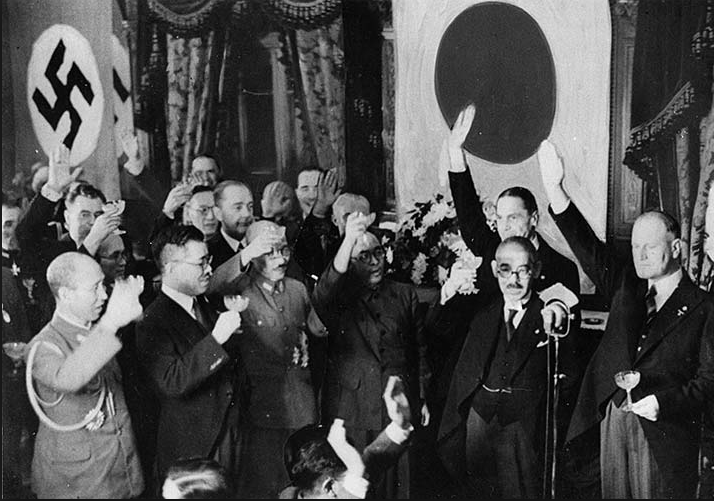
Japan's overlords and Germany's Nazi Party
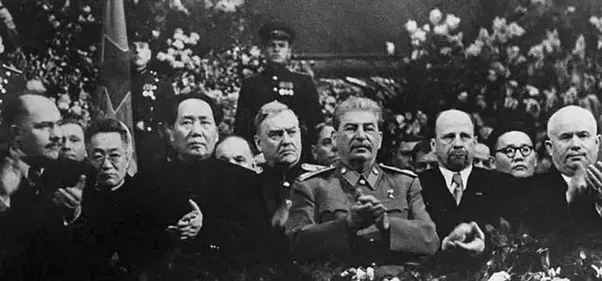
Stalin and Mao Zedong

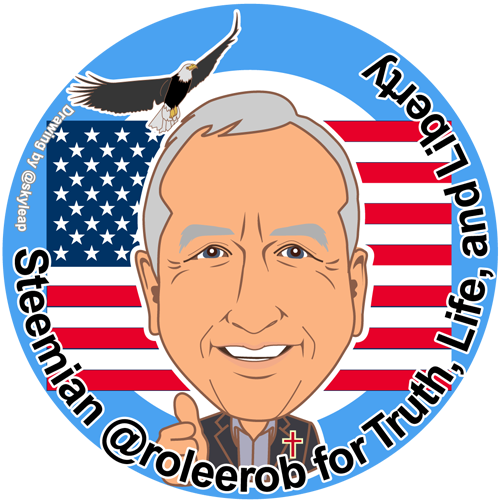

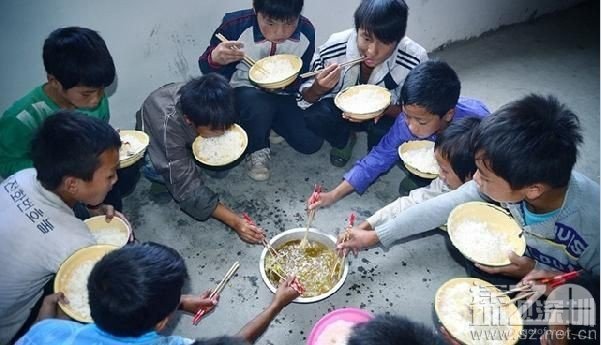

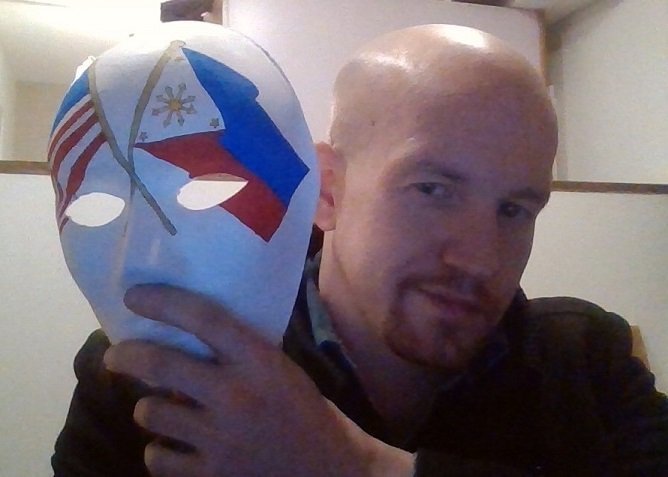
While respecting the opinions of many, I hope Trump doesn't actually become the king of Asia in any of its forms. It's essential that the history and aspirations of each region and each country be respected, with mutual respect.
Es un placer conocerle! Dear @roswelborges !
Are you Cuban?
I am an eastaisan!
I remember that the relationship between Cuba and the United States was not historically friendly!
I agree with your point!
By the way, Currently, East Asia maintains peace because of the presence of the United States.
Gracias!
Hi. I'm glad you like the photos. Thank you so much for stopping by. Hugs
It is banksters that rule kings. Pic related.
IMG source - AmericasBestPics
The banksters rule the world, and respect no one nor anything.
Wow! What a massive, deeply researched and well cited post. I noted something that seemed to be an error, however, so I thought I'd mention it so that you can either alleviate my misunderstanding, or fix the error. The following quoted text is the 'link description' under a photo of what appears to be Japanese soldiers marching in ranks. It doesn't seem to match the photo.
You later cite an apparent historical work of fiction, as follows.
The claim thereafter cited calls the Japanese attack on Pearl Harbor a 'surprise'. It was not a surprise at all. The West knew of Japan's ambitions, and in fact had been working very diligently for decades to manufacture Japan's need to wage war for resources. Additionally, it is today a matter of public record that Roosevelt was fully aware of the Japanese war plans to attack Pearl Harbor, because the Allies had cracked the Japanese code and intercepted their discussions. The claim the attack was a surprise was, and always has been, a bald-faced lie. War was deliberately forced upon the Japanese so that the banksters could have their world war, the profits it generated on the backs of the dead, by the mechanism of that lie creating the propaganda necessary to fool plebs into fighting and dying for the profits of the banksters.
Read 'War is a Racket' by Gen. Smedley Butler, who well described himself as a thug for banksters. It's a short book regarding simple profiteering from death and destruction, easily understandable by elementary school children - which is why no school ever teaches such things to them, because our indoctrinations are vital to the profits of the enemies of humanity, the banksters. In fact, this post is a regurgitation of the lies and propaganda with which we all have been deluded in order to serve as cannon fodder and profitable serfs to the 'Gnomes of Zurich', as the brutal banksters have been referred to by prior generations. All of the citations in the OP are examples of that deranging propaganda and lies that we have been taught at the behest of the murderous profiteers that farm humanity. You well demonstrate how successfully we have been deluded, and cite the sources used to do so, with the great erudition and competence your good character creates.
Knowing this fact enables the subsequent division of Korea (and Europe), and the division between the Allies and resulting cold war, to be considered through the lens of banksters, as the business opportunity and profit generator they actually were intended to be, and have continually been. The advice of the banksters was provided all agents of governments involved, maneuvering China and the USSR into the necessary opposition to the West in order to create the always profitable controlled opposition that has enriched the banksters beyond actual reckoning in the decades since their successful gerrymandering and pitting the dogs against each other. The banksters invested heavily in creating Communism, the USSR, China, and WWII, and the world today reflects their ambition realized, extraordinarily profitable, the more so the more destroyed by weapons produced by corporations profiting from the defense industry so created by their machinations.
My father served in Korea, and to his dying day was utterly certain of his belief in the propaganda that drove his parents' generation to die in WWII for banksters profits, and drove him to war for those same reasons. The very same reasons lie behind the Vietnam war, and the horrific destruction afflicting MENA and the Ukraine today. Indeed, the world seems again poised on the brink of global war, between fully nuclear powers, and Israel is glaringly genociding and ethnically cleansing Palestine in a blatant theft of clay that has been the homeland of the people being dispossessed for tens of millennia, going back deep into prehistory. Such is the pecuniary interest and avarice of the banksters that no mere human concern, no societal interest, indeed no ecological concern blemishes their unbridled larceny. They will kill us all, eradicate terrestrial life itself, for their profits, if they can derange and stupefy us into it.
The shiny-headed Texan is a cheerleader for these verminous parasites, and my forthright statements regarding that Shibboleth of horror is why he froths at the mouth in unending lies, pejorations, and ad hominems - because no facts or reality enable substantive arguments against the truths I have just stated above.
This is the truth of history in fact, and the condition of the world today.
Thanks!
Dear @valued-customer !
Are you claiming that Franklin Roosevelt knew that Japan was going to attack Pearl Harbor but didn't tell the American people?
Your argument is interesting! However, the arguments of Japanese and Korean historians differ from yours!
Japan succeeded in attacking the Philippines and Pearl Harbor simultaneously to avoid American surveillance.
At the time, the United States did not anticipate the attack on Pearl Harbor because they expected Japan to attack the Philippines first!
Roosevelt also anticipated a war between the United States and Japan, but he was not a god and did not anticipate the attack on Pearl Harbor.
I believe that if the United States had not been defeated at Pearl Harbor, it would have defeated Japan and won within two years.
I acknowledge the possibility that World War II and the Vietnam War were caused by international financial powers! However, the Korean War was an unexpected, unforeseen event.
Americans boasted that the United States was the greatest victor in World War II. However, they were deeply offended and insulted by the fact that five years later, the United States drew with China in the Korean War.
I believe Americans absolutely want victory and refuse to settle for a draw!
However, in the Korean War, Americans had to settle for a humiliating draw.
So, Koreans claim that the United States had the purest motives and emotions in the Korean War!
I'm not sure if I understood your excellent English!😂
Many Koreans today express their respect and gratitude for the 50,000 Americans who died in the Korean War!
On the other hand, North Koreans express their gratitude and respect for the one million Chinese who died!
Watching you and Rob's confrontation, I wonder if there's a civil war going on among Americans right now!
I believe that the great world called America is a gathering of nations, so there is always conflict and struggle!
I find the genie in my lamp sexually attractive, but I'm not sure if he has the authority and honor of a king!😄
His sensational and provocative articles are entertaining, but I'm not sure they can compare to your excellent political and diplomatic work!
Actually, I have a hard time understanding his unique English sentences!😅
I felt his work had a similar charm to Taboo II!😆
I want you to keep my secret!😌
Taboo II
I wonder if I understood your excellent English!
Thank you for kind answer!
Roosevelt was aware of the impending attack, because the US had cracked the Japanese code and was listening to their discussions. If you watched the video I posted, the US was even trying to get attacked by making their forces more vulnerable. Roosevelt certainly lied to the American people, because he was also forcing them, not only Japan, into war in which many of them and their loved ones would die.
That's treason, and he should have hanged for it.
Americans don't want war. The corrupt politicians do as they're told by banksters whom do very much want war, all the war they can get, because the more war there is the more profits they make. They make those profits on the corpses of the dead whom they have caused to die for money. They are traitors, implacable enemies of free and good people. Once Americans are in a war, of course they want to win. Who wants to lose a war? Nobody. What's the point of waging war, losing beloved friends and family in that hell, just to draw? No one wants to draw either.
The motives of Americans are immaterial. It is not Americans that manipulate nations and polities into war, nor Americans that will profit by selling belt buckles and boots, lending immense sums of counterfeit money at exorbitant interest to warring governments. It is the motives of banksters that are material regarding war, and they are purely evil through and through.
Each man is the king and has absolute authority over his realm, which is himself. Political leaders called kings have usurped that authority, and do not have it lawfully. None of them have any honor, as their entire edifice of power is fraudulent, the result of the basest lies and enslaving free men. The only worse vermin in the world than kings are their masters, banksters.
Dear my respected senior, @valued-customer !
I guess Roosevelt was expecting a war between the United States and Japan!
But, I thought he didn't expect Japan to attack Pearl Harbor because he wasn't a god!
Imperial Japanese soldiers have long studied America's weaknesses and strengths.
They thought America's weakness was the distance between Hawaii and the Philippines!
So, the Japanese army attacked Hawaii and the Philippines simultaneously, and the American army collapsed.
I trust you don't think East Asians are less intelligent than white Americans because you're not a white supremacist!
Do you remember that Japanese scholars have been studying for 100 years to prepare for war with the United States?
I remember the strengths and weaknesses of America that the Japanese studied!
The Japanese won early victories over the Americans because they knew their strengths and weaknesses.
I hope you don't mind my awkward English!
American civilians opposed the US military's involvement in World War II and the Korean War. However, because Americans participated in the wars, Europe and Korea were saved from the brink of destruction.
Europe survived and is still alive today because half a million Americans died in the war.
Do you think Rob with the shiny hair supports the banksters?
I remember Benjamin Franklin giving George Washington money he borrowed from European bankers so that America could win the war against Britain!
BENJAMIN FRANKLIN AND THE FRENCH WOMEN
Looking at Benjamin Franklin and the women of Europe, I thought he was not a Puritan at all!
I hope you don't mind my rude English!
Not so much. Because the wars were imposed by corrupt politicians that maneuvered their populations, millions died, and extraordinary destruction of civil infrastructure, political structure, and civil society ensued. There should not have been those wars at all.
All wars are banksters business and profit centers.
Dear my respected senior, @valued-customer !
I agree with you!
By the way, I remember Benjamin Franklin as a brilliant banker, currency issuer, journalist, and businessman!
Many East Asians, seeing his remarkable ability to accumulate wealth, believe he is the creator of American capitalism!
My dear @valued-customer !
Do you remember that Benjamin Franklin borrowed money from European bankers and gave it to the American Revolutionary Army?
Do you think the American Revolution would have been successful if Benjamin Franklin had not borrowed money from European banks?
I remember you saying that all the universities and banks in the eastern United States with a long history were founded by Europeans!
I hope you're not offended by the awkward English of American elementary school student!
I hope your health and long life!
The Masonic plot to create the USA could not have succeeded without Franklin's diplomatic prowess, as England had the most powerful military force on the planet at the time, and only focusing the ire (and assets) of her enemies on that rebellion enabled enough might to oppose that tyranny.
What is remarkable to me is that rebellion sparked a global, or at least European, revolution, or perhaps better described as an evolution, of governments into republics from monarchies over the following century. Franklin didn't just scrabble funds for American independence, but set the course of European transformation to liberal democracy that ensued.
Of course, Franklin didn't do that on his own, but used the Masonic covert society that had spread across the feudal imperium and covertly infested every fiefdom and principality. Because of this covert nature of most of the negotiations behind his successful diplomatic campaign, history has no record of most of the critical persons and sources of support contrived by Franklin. The reality is that Franklin sold the nascent Confederation of independent states in America (which was the form of the USA then envisioned) like a high class whore on a street corner to private fortunes as a business and profit generation scheme.
On that particular, America well delivered opportunity to dodge the parasitic nobility that then dominated European financial markets, enabling private capital to invest and avoid the burden of taxation. The 3% tax on tea that famously is claimed to have inspired American revolutionaries to dump tea into Boston Harbor was symbolic of the transformation of finance free enterprise offered the European fortunes.
The legend that Benjamin Franklin and George Washington were Freemasons is well-known in Japan and Korea. However, I don't know anything about Freemasons. I assumed they were the group that built the Tower of Babel in the Bible.
Japan's overlords also believed that the American Revolution had sparked revolutions in Europe, including the French Revolution! Therefore, they feared that America would spread revolution among Japan's serfs and slaves.
Do you believe Benjamin Franklin exploited the American Revolution for the benefit of Freemasonry? Perhaps Steve, Joseph of Oregon, and Rob with the Shiny Hair would disagree!
I guess you don't respect Benjamin Franklin!
Do you think American independence would have been possible if he had not borrowed money from the European nobility?
I think he has a remarkable ability to gain wealth, power, and fame as an orphan!
I agree with you!
I believe that Benjamin Franklin was able to create American capitalism because he came from poor, working-class backgrounds and became rich!
Benjamin Franklin tempted European financiers by suggesting that if the United States gained independence, Europe could gain immense wealth by accessing the continent's boundless resources, food, and labor.
So, I believe that the alliance between Benjamin Franklin and European financiers enabled America to achieve independence! I believe he created the foundation of American capitalism!
On the contrary, I greatly admire Benjamin Franklin. The tyrants of Europe were (and still are) utterly detestable, and little has done more good for humanity than that extraordinary transformation of civil society Franklin fundamentally enabled.
I think the subsequent fruits of that evolution of governance across Europe subsequently tell the tale. The combination of secret societies and money avoiding taxes was compelling, and the nobility are notoriously vile even if they're not stealing everything with exorbitant taxes.
I agree, and admire him for it. But, Freemasonry has changed in recent centuries. For millennia prior to the American revolution their society was focused on principles of individual sovereignty, freedom, and enabling one another to prosper despite being subjugated to monarchs. After the monarchies were removed, the powerful players in the Illuminati couldn't resist filling that perceived power vacuum, and Masonry has become more a means of perpetuating the power of an elite than of freeing tradesmen from the nobility/elite.